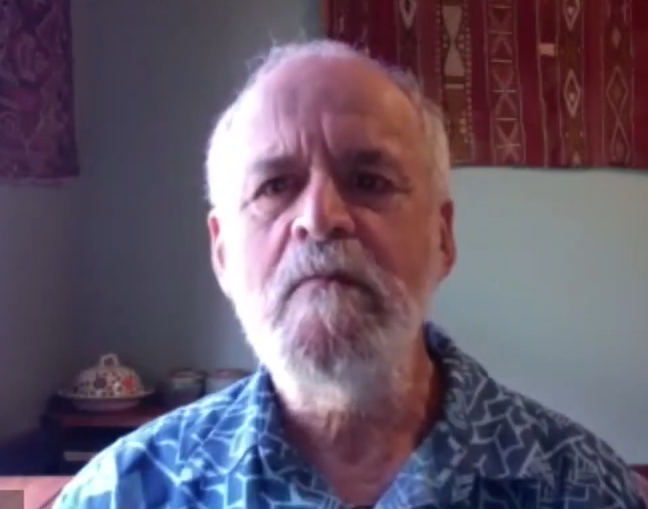In the world of psychology, few names resonate with as much influence and innovation as David Epston. As one of the co-founders of Narrative Therapy, Epston’s work has transformed how therapists and clients understand and engage with mental health issues. His revolutionary approach empowers individuals to reshape their personal stories, allowing them to break free from limiting beliefs and achieve greater well-being.
If you’re interested in psychology, personal growth, or alternative therapeutic methods, understanding Epston’s contributions is essential. This article will explore who David Epston is, what narrative therapy entails, and how his approach continues to inspire and impact the field of psychology.
Who is David Epston?
David Epston is a New Zealand-based therapist who, along with Michael White, co-created Narrative Therapy in the 1980s. Narrative Therapy is a therapeutic approach that focuses on the stories individuals tell about their lives and problems. Rather than seeing a person as defined by their issues (e.g., depression, anxiety, addiction), narrative therapy views problems as separate from the person. This approach invites clients to re-author their stories and transform their relationship with the issues they face.
Epston’s work draws upon a variety of disciplines, including constructivist psychology, social constructionism, and postmodern philosophy. His innovative ideas have challenged traditional therapeutic methods, emphasizing the importance of language, culture, and social context in shaping personal identity.
What is Narrative Therapy?
At its core, Narrative Therapy is about storytelling. It proposes that individuals make sense of their lives through the stories they tell. These stories, however, are often influenced by societal norms, family dynamics, and personal biases. Epston, alongside Michael White, revolutionized therapy by teaching clients that they are not defined by these stories, especially when they are negative or limiting.
The therapy involves an in-depth exploration of the narrative a person holds about their life. Therapists help clients “deconstruct” harmful narratives and, over time, reconstruct them in a way that allows for personal growth, healing, and empowerment.
Key aspects of Narrative Therapy include:
- Externalizing the Problem: Instead of viewing a problem as something inherent to the person (e.g., “I am depressed”), the problem is seen as something external that can be confronted and understood. This shift in perspective helps clients feel less shame or self-blame.
- Deconstruction: This technique involves questioning the dominant narratives and beliefs that a person holds, particularly those that limit personal growth. For example, a client who views themselves as a “failure” might work with a therapist to explore the origins of that belief and find new, empowering narratives.
- Re-authoring the Narrative: In this stage, the therapist helps the client craft a new story that reflects their strengths, values, and future possibilities. This is a key element of Epston’s work, allowing individuals to regain control over their lives and their identities.
- Thickening the Plot: Epston encourages clients to explore their lives in richer detail. By recounting instances where they successfully managed challenges or exhibited resilience, clients build a fuller, more nuanced story about themselves.
David Epston’s Impact on the Field of Psychology
David Epston’s contributions to psychology have had a profound and lasting impact, particularly in the way therapists approach issues of identity and mental health. His work encourages collaborative and empowerment-based therapy, where clients are seen as the experts in their own lives. This approach contrasts sharply with traditional methods that often position the therapist as the authority.
Through narrative therapy, Epston has empowered individuals to overcome issues like depression, anxiety, trauma, and addiction by giving them the tools to reinterpret their struggles. Instead of focusing on the problem itself, Epston’s therapy focuses on the meaning and context behind the problem, fostering a greater sense of agency and control in the client’s life.
His work has also had a significant influence beyond therapy, affecting areas like social work, education, and community development. Narrative therapy’s focus on identity and empowerment aligns with social justice movements, as it encourages people to challenge dominant cultural narratives that may perpetuate inequality or harm.
David Epston’s Books and Resources
David Epston has co-authored several influential books on narrative therapy, most notably “Narrative Means to Therapeutic Ends” (with Michael White), which remains one of the foundational texts of narrative therapy. This book outlines the theory and practice of narrative therapy, providing readers with practical tools to incorporate the approach into their own work.
Epston has also published numerous articles and papers that further explore the concepts of externalization, deconstruction, and re-authoring in therapy. These resources continue to serve as essential reading for anyone interested in contemporary psychological practices.
Criticism and Debate
Like any therapeutic approach, narrative therapy is not without its critics. Some argue that the focus on language and narrative may overlook important biological or psychological factors that contribute to mental health. Others question whether narrative therapy is suitable for all clients, especially those with severe mental health conditions.
However, despite the criticism, narrative therapy has gained widespread acceptance and has been integrated into many therapeutic practices around the world. Its ability to offer clients a sense of empowerment and autonomy is one of the reasons it continues to thrive in the 21st century.
Conclusion
David Epston’s work in narrative therapy has profoundly shaped the field of psychology, offering individuals a new way to understand and address their personal struggles. By focusing on empowerment, identity, and the transformative power of storytelling, Epston has given clients the tools to rewrite their lives in ways that promote healing and growth.
Whether you are a mental health professional, a student of psychology, or someone seeking personal development, David Epston’s ideas offer a powerful and inspiring approach to overcoming life’s challenges. As we continue to move towards a more holistic and client-centered understanding of mental health, Epston’s work will undoubtedly remain a cornerstone in the field of therapy.







3 thoughts on “David Epston: A Pioneer in Narrative Therapy and Transformative Psychology”
Comments are closed.